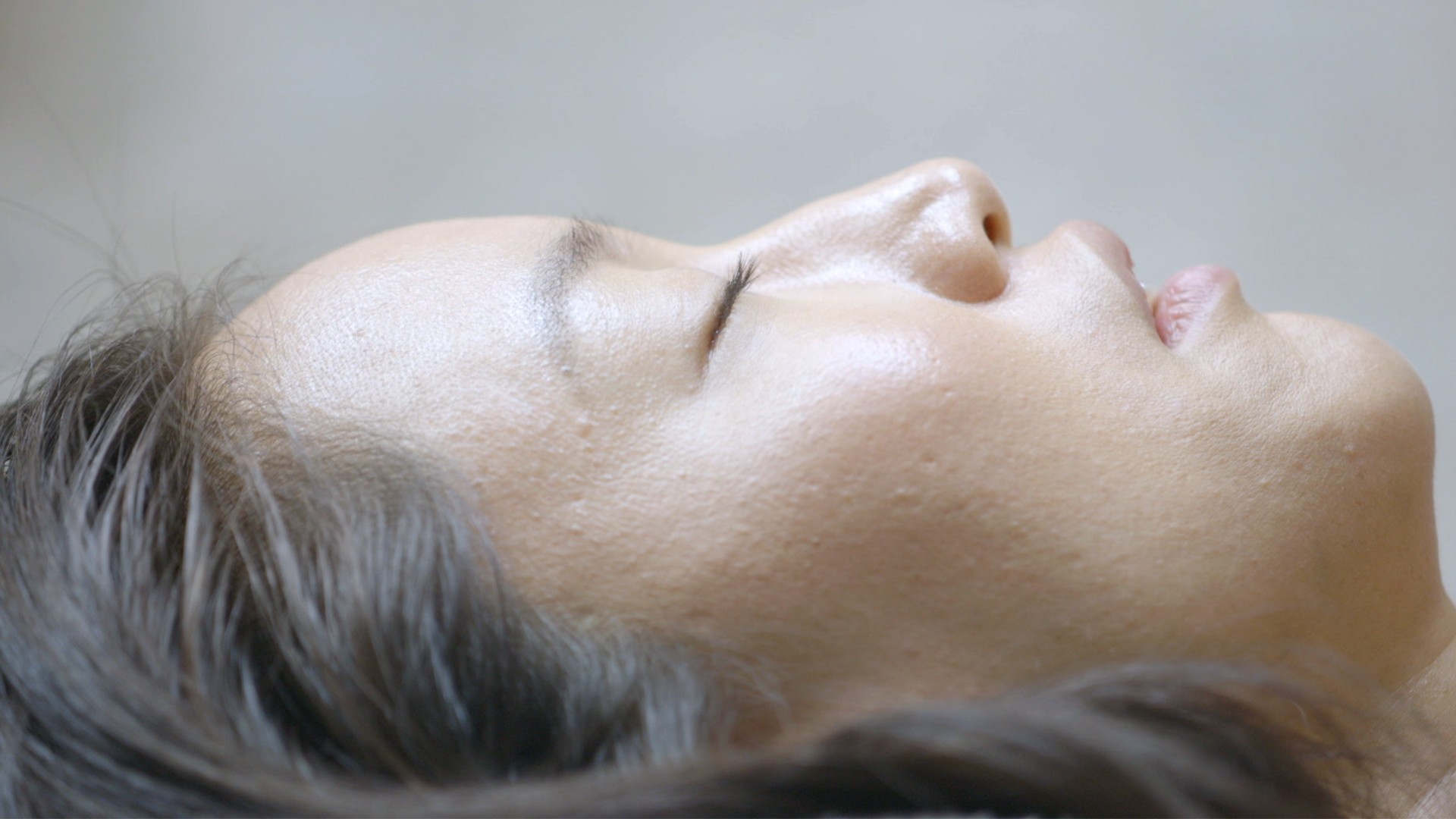Jonathan Torgovnik / Getty
Occupational Hazard is a series about how different jobs affect workers' mental health.In 2013, I received a phone call from a raspy-voiced reader who promised the "wrath of god" for an article I had written about same-sex marriage. Later that year, after a separate article on race and the media, my name was repeatedly mentioned in a scathing YouTube monologue by a guy the Southern Poverty Law Center calls a "white nationalist" and "hero to much of the radical right." The video was viewed more than 10,000 times and the comments section of my article was soon flooded with hateful commentary, some of it directed personally at me.Then there was the time I was subpoenaed to testify in the federal prescription drug-dealing trial I was covering. (I was never called to the stand, but I was still terrified.) There was the time I worked at an understaffed alt-weekly newspaper, barely taking a day off for eighteen months before watching the paper shut down after 36 years—and then being called on to write the paper's eulogy in the final issue. There was also the time I had a prolonged—and, eventually, public—battle over unpaid wages I was owed from a freelance client.I share these events not because I think I've had an extraordinarily stressful career, by the journalism industry's standards. I'm not a war correspondent or full-time crime reporter. I didn't cover the 2016 Presidential race, which means I wasn't choked, or grabbed, or bombarded with death threats or anti-Semitism. I'm not a woman reporter who has to wade through unimaginable online abuse as a routine part of her job. I'm simply a journalist who, after about a decade in the business, recently took an honest look at the mental toll of the job.For the last couple years, I had a sense that my growing psychological distress—waves of depression, anxiety, and hypochondria; a slow and steady loss of pleasure from my work; a creeping dread that settled over my life like a fog—might be related to the stresses of my work. Then this spring, while working on a particularly difficult magazine article and weathering a string of challenging events in my personal life, I tumbled into an intense depression.
I've taken to calling it a case of "burnout," because, unlike previously depressive episodes, this time I was physically unable to work. It felt like the parts of my brain that contain motivation, energy, and the ability to arrange ideas, had been injected with novocaine. I felt zombie-like. I was mentally exhausted, emotionally drained, and more cynical than I'd like to be.Journalistic instincts die hard, though. And during breaks between going to the gym, picking up takeout meals, and watching movies in bed, I started looking for answers to a disturbing question: Is journalism bad for my mental health?The last few years have brought a mini-wave of journalists talking candidly about the effects of their work. In 2014, Elle contributor Glynnis Macnicol wrote a piece that nails what it feels like to experience journalism-induced burnout. The following year, Huffington Post published a five-part series on mental health in the newsroom, the award-winning reporter Mac McClelland published a book about her experiences with PTSD following her coverage an earthquake in Haiti, and NPR's Gene Demby took a deep-dive on how it feels for black journalists to, as the headline reads, "report on black death." Compared to the overall output of the news media, these articles don't add up to a lot of noise. But a conversation is brewing.Still, though, experts say that journalism is years behind other professions that deal regularly with trauma. University of Toronto psychology professor Anthony Feinstein, who has conducted research on the mental health of journalists around the world, from Mexico to Iran to Kenya to war correspondents, has said in a report that before he began exploring the subject in the late 1990s, he did a "thorough computer search of all the medical and psychological literature [and] failed to find a single article devoted to this subject."
More From Tonic:
Nowadays, the body of research is slowly growing—Columbia University's Dart Center has an excellent fact sheet on the subject—but the professional culture still lags. "I think cops and firefighters and EMS workers have a stronger organizational culture and understanding of the impact of that work and how to support people," says Elana Newman, a psychology professor at the University of Tulsa and research director for the Dart Center. "I think it's easier to talk about [mental health] even in the military now than it is in journalists." The stigma surrounding mental health in the journalism world is "huge," she says."As a journalist, you're sort of expected to be the one reporting on trauma, not the one suffering it yourself," says Gabriel Arana, a freelance reporter who edited that HuffPo series on mental health, and wrote its kickoff piece. "And so a lot of people see it as almost their professional poise not to divulge when they're suffering, when they're either feeling burned out or going through a depressive episode." He says that the idea journalists are supposed to be superhuman observers of history and not feel anything "is not true and sort of harmful."Over the years, I personally internalized some of these stigmas. And I know that I also convinced myself that, because of how excited and fulfilled I was by the job, it couldn't also be affecting me negatively. I had yet to realize that a dream job can also, sometimes, become a nightmare.When I had my burnout episode, though, it was like a spell had broken, and I could clearly the see the mental health risks of the job. And they were everywhere. A Commander-in-Chief who has declared the news media the "enemy of the American people." An industry where literally hundreds of thousands of print journalism jobs have disappeared in recent decades and where remaining jobs can pay less than the local median income. A job that requires absorbing some of the worst aspects of humanity, from corruption, to climate change, to crime, to child abuse and so much more. A job that presents a never-ending stream of deadlines, an urgent sense of competition, and an expectation to—in the words of a journalism job posting I recently read —"dominate the conversation on social media."Any one of these factors could have an effect on the mind of a level-headed, healthy person. Toss them together and you've got a psychological minefield.For me, a freelancer who performs every role in my one-man news organization—I'm the scheduler, CEO, fact-checker, manager, and accounts payable department—the responsibility to stay on top of my mental health is daunting. But now that I've been knocked down, I'm going to be far less cavalier about ignoring my vulnerability.This summer, during my burnout, I spent about six weeks focusing on giving myself moments of rest and care. It had been literally years since I had gotten or given myself a vacation, so I bought a bike, started playing golf after a decade away, and filled my days with museums and movies and regular therapy sessions. I spent time with friends and family members, including my baby niece. I unplugged from social media (sacrilege for a journo) and, at times, I consciously steered clear of listening to the news. Over time, my mood lifted and my energy and mental clarity returned; I stopped scanning local job boards for non-journalism jobs. Eventually, I was ready to ease back into work, albeit with a whole new set of healthy habits and psychological safeguards.I also wanted to join the conversation about journalism and mental health, and to use whatever modest platform I have to say a few things to my fellow journalists. One is that admitting that I struggle with anxiety and depression does not make me any worse of a journalist; it simply makes me a human being. Thank goodness there are journalists like Katy Tur who, as a recent New York Times profile noted, can't be rattled. But I'm not one of them.I have been rattled by my work, sometimes severely, and I'm okay with admitting that. And from my conversations with experts, I've learned that ignoring mental health issues may actually make a person a less effective reporter. Feinstein tells me that, just as an unwell physician might make a bad diagnosis, "I think there's a real risk that if a journalist is unwell psychologically, that can affect their work…It could give a certain slant to a story that might not be accurate."Newman says that if the industry had a top-to-bottom awakening about mental health, you would hear J-school professors saying things like "You know the work you do is hard, and it's going to take a toll. How do you plan on practicing compassion for yourself in those moments?" Nobody ever had that conversation with me, and I had to learn that painful lesson on my own. Journalists, take it from me: Ignoring workplace stresses will only worsen the eventual gut-punch.During my reporting for this piece, I spoke with Dean Yates, the former Iraqi bureau chief for Reuters who, last year, published an extraordinary first-person piece called "The Road to Ward 17: My Battle with PTSD."And toward the end of our interview, Yates—who was recently named the Journalist Mental Health and Wellbeing Advocate at Reuters—told me something that gave me an added burst of inspiration. When he was in the psych ward being treated, he met a police officer and fellow PTSD patient who told him how important it was that Yates use his journalistic skills to help address the problem. He remembers the cop telling him "You can write about what it's like for us…You can help people.""Journalists with mental illness are in a unique position to be able to tell that story, themselves, and to educate people about mental illness," Yates tells me. This doesn't mean that every journalist needs to do it, but those who are willing can have a significant impact."I kept this to myself for a long time, and I felt so alone," he says. "And that feeling of being alone with this was crippling."Read This Next: What It's Like to Live in a Mental Healthcare Desert
Advertisement
Advertisement
Advertisement
More From Tonic:

Nowadays, the body of research is slowly growing—Columbia University's Dart Center has an excellent fact sheet on the subject—but the professional culture still lags. "I think cops and firefighters and EMS workers have a stronger organizational culture and understanding of the impact of that work and how to support people," says Elana Newman, a psychology professor at the University of Tulsa and research director for the Dart Center. "I think it's easier to talk about [mental health] even in the military now than it is in journalists." The stigma surrounding mental health in the journalism world is "huge," she says."As a journalist, you're sort of expected to be the one reporting on trauma, not the one suffering it yourself," says Gabriel Arana, a freelance reporter who edited that HuffPo series on mental health, and wrote its kickoff piece. "And so a lot of people see it as almost their professional poise not to divulge when they're suffering, when they're either feeling burned out or going through a depressive episode." He says that the idea journalists are supposed to be superhuman observers of history and not feel anything "is not true and sort of harmful."Over the years, I personally internalized some of these stigmas. And I know that I also convinced myself that, because of how excited and fulfilled I was by the job, it couldn't also be affecting me negatively. I had yet to realize that a dream job can also, sometimes, become a nightmare.
Advertisement
Advertisement
